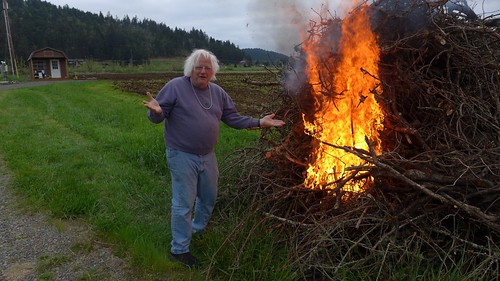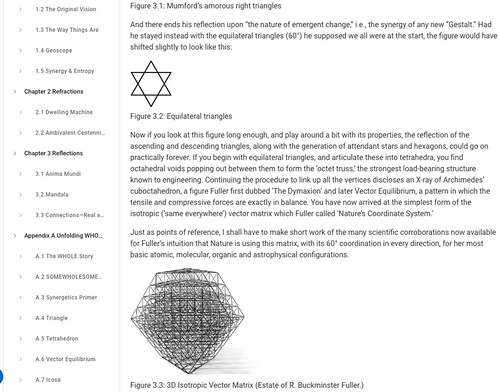In a strict Quaker jargon, one of my own rolling, but based in the lit, we have: ranters and quietists. The quietists typify the practice as Silent Worship is our central ritual, yet spoken ministry or sharing is also allowed and expected, which is where the ranters come in.
However, that language, of quietists versus ranters, is somewhat misleading in that these are roles more than persons. A given Friend will get more ranty, or move towards a quietist aesthetic. Quietists still talk, we're not Trappists. Neither side feels forced to concede as the tension is perennial.
Translating back in time to the North versus South in the northern Americas (Mexico and Canada played roles), Friends were often farmers and many could use the help, so when Friends in London passed a minute declaring slave owning off limits, those in the new colonies felt obliged to obey or jump ship, which was easily doable in the sense that many brands of Christianity accepted slavers with open arms.
Being in the minority, as not slave owning, Quakers started to feel the evil eye of their neighbors, as slavers saw their own way of life as moral, ordained, reflective of God's plan. "Who are these Quakers amongst us with their uppity holier than thou attitudes?"
Much of the prevailing ideology was rooted in ideas about Noah's sons' families and their offsprings: the many races. Which was best? Or as Darwin had taught us to say (somewhat tautologically): the most fit?
Many Friends upped and left their properties in the east, especially in the southeast, and migrated west. This was still a feasible strategy for average families, but with a catch: it continued to pitch the whites against the reds (as seen in racial terms by those living the dream), shorthand for the differing genetic lines now attempting to coordinate the sharing of resources.
Humans often do this thing called "war" when attempts at coordination fail. War is a kind of helpless flailing but with lots of lipstick and dress up (especially for guys). Other times, humans succeed in remaining coordinated.
I tell the story of Sam Hill as one such post Civil War refugee. The practice of slavery was now somehow encoded in the Amendments as prohibited, and society would find workarounds, other legal forms of forced labor. Debt is always a primary motivator, as we learned in the first five thousand years.
Whereas Sam got all the way out to Seattle and the Columbia Gorge, many Friends halted their westward journey in Indiana.
As one might imagine, the ranting that went on within Quakerdom was often fiercely delivered and strongly felt. The whole nickname moniker of "Quaker" alludes to their excited tremorous state when "infused with the Spirit" as they might describe it, and not meaning alcohol.
The Religious Society of Friends as it is formally named, is not Pentecostalist, meaning "speaking in tongues" (the whole practice, popular in other denominations) is not encouraged, but sharing from the heart certainly is.
Many a Meeting for Worship is broken up with remorseful sobs or quiveringly principled rants, as it's what the format allows and is designed to withstand. People shake hands and go their separate ways, or stay for coffee or tea. A more affordable form of group psychotherapy would be hard to come by.
In pre Civil War days, when owning slaves was already grounds for being read out of Meeting (how Quakers got disbarred), the ranters were often abolitionists. They would make their true feelings known amongst other Friends yet perhaps remain mostly quiet by day, tending their farms, minding their own businesses. At night though, underground railroads were happening, as fleeing slave families were passed forward, towards prospective freedom.
Such abolitionists were also labeled immediatists, because their rants were to the effect that the abolition of slavery was long overdue, not only among Friends but amongst the populace in general. Otherwise, the hypocrisies and contradictions of going forward as a democracy, one with a Constitution, would result in the latter's demolition.
These abolitionists were a type of unionist then, wanting to preserve the nation state as one, not fated to become two. To this end, the non-immediatist, non-abolitionists were willing to grandfather in the practice of slavery where already legal, but not extend it to new states, already foreseen as far west as Lewis and Clark had taken their survey, at the start of the 1800s.
Other more quiet Friends were, like Lincoln, thinking that once the slaves were freed, they might move en masse to a homeland, in order to be far from their former owners. Liberia? Belize? These were among the fantasies common in that day, and some freed families and individuals did flee to these places, as well as to Haiti.
Some Friends could say to themselves they had no dog in the fight. Many unionists were quite happy to return runaway slaves, countering the underground railroaders with more respect for the autonomous region.
Much of what helped end slavery came about because humanity was industrializing, having harnessed the power of steam, fossil fuels, sun and wind in new ways. Humans had less need to rely on other humans for their calorie output and horsepower. Horses faced retirement for the same reasons.
Humans professionalized and refined their practices around "power tools" and ages without slavery became possible, even if in practice, enslavement persists. Sociologically speaking, the planet is not free of slavery, even if the arrow of civilization points in that direction. Alfred North Whitehead held that it did, almost tautologically, as a matter of grammar. Civilization is the opposite of tyranny and oppression.
A 1900s American inventor, R. Buckminster Fuller, pointed out the positive benefits of industrialization in terms of "energy slaves", units of caloric output that represented what a hard-working human might do in a specific unit of time, in comparison to a horse. Horsepower is energy per time, not just energy without a time dimension.
Humans might eventually do the work of a horse (e.g. plow a field), given days extra, but their horsepower is rated less because of the extra time taken.
This "energy slave" writing proved too "hot potato" in the early 21st Century, at least among some groups I encountered in American universities, as too many racisms were still simmering, boiling over in some cases, and any use of words such as "master", "oversight", "slave" were considered too triggering on the face of it to admit within polite conversation, and academics often strive to be polite (why what they hand out is called a diploma).
Many Meetings, frequented by academics, did away with their "Oversight Committee" nomenclature. No contemporary would want to serve as "overseer" (i.e. "supervisor") the thinking went, as the old timey language sounded too slave-owny.
One ongoing conversation within General Systems Theory (GST) -- cite Boulding -- is whether mechanization is inherently at the expense of, or is optionally a booster of, higher living standards. Of course so much depends on what counts as "higher".
Having a bleaker history, more nightmarish, is certainly a way to lower living standards. What will we have to look back on? Consider policymaking in the light of future hindsight. Practice "anticipatory design science" (Fuller) as if your lives depended on it.





